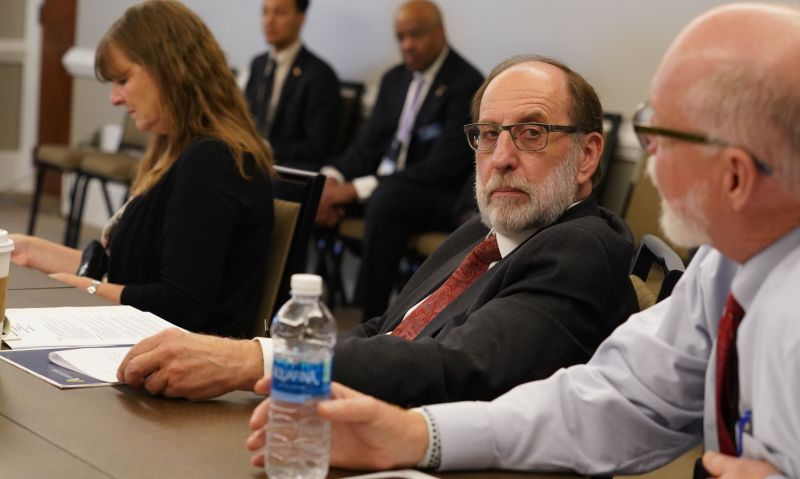
Readiness for the ‘new’
As part of its yearly programming track on post-military employment and career development, the Veterans Employment & Education Commission hosted an Employment Innovation Taskforce Roundtable on Monday, Aug. 28, during the 104th National Convention in Charlotte, N.C.
A group of representatives from the government, industry and other organizations gathered at the Charlotte Convention Center to discuss how they have adjusted their programs for hiring and retaining post-military workers through the shifts of the last few years, and what more stakeholders – as well as the service branches, and veterans themselves – can do to promote a good person/job fit.
The descriptive brief for the roundtable emphasized newness – “new age of work” (post-COVID) and “new generations of workers” (including Gen Z), all contributing to a “new world of work.” That new world is grappling with the ever-expanding impact of AI, and it is incumbent on the military and the business sectors alike to prepare today’s active-duty servicemembers for it, according to Adam Rocke of the U.S. Chamber of Commerce Foundation’s Hiring Our Heroes (HOH) program.
But among the talk of reskilling, upskilling and development programs for both the newly transitioned-out and longtime employees, it should not be forgotten that military service creates a set of basic skills that are universally applicable no matter the direction of the working world; as Paul Sinanian, manager of talent programs and training at BMW Manufacturing, put it, “This is where we are right now: I need a problem-solver.”
Among the participants were Ruth Parnell and Hymie Barber, co-founders of USA CareLiving, which works to connect veterans and spouses to careers in long-term health care. Barber said that many veterans whose MOS involved the medical field leave it after service because they have problems translating that MOS to civilian experience or credentials. And the field, walloped by COVID, is in dire need of personnel, especially given that problems with language and culture fit can occur with foreign workers, according to Parnell. As an added bonus, Barber added, health care has jobs available in the rural areas and small towns veterans often want to return to.
John Decoteau III, vice president of military admissions at the Universal Technical Institute, made the point that “different people need different things” from their post-service careers, and the working world is similarly going to need different things from its employees in the coming years. Positioning veterans to be able to take full advantage of changes as they occur will continue to be a priority of the taskforce, and of The American Legion.
